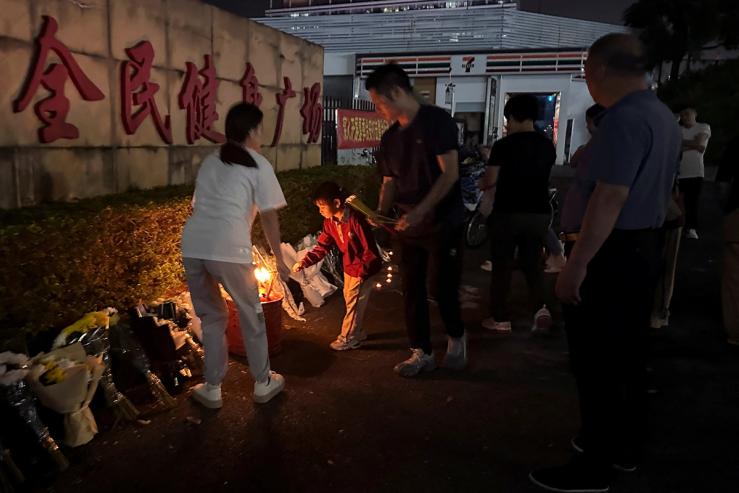The News
Some 35 people were killed and dozens more injured when a 62-year-old man in Zhuhai, China rammed into a crowd outside a sports center on Monday. But you will find barely any reporting about the incident on most major Chinese news sites.
One of deadliest acts of violence in the last decade, Chinese authorities have been scrambling to censor the incident physically, going so far as removing flowers and letters left at the attack’s site.
The response reflects Beijing’s desire to control the media to ensure social stability, but in doing so, some political scientists have warned the government is perhaps more at risk of brewing further frustration, and even violence.
SIGNALS
Censorship could create violent feedback loop, experts argue
Social stability is crucial to Beijing’s claim of legitimacy, and the government largely does not tolerate “any public expression of emotions,” a Chinese political scientist told Australian broadcaster ABC. But this tactic could lead to a “[bottling] up” of social tensions, she said, adding “one day it’s going to erupt with another, even more violent incident” than the Zhuhai attack. Others speculated whether China’s economic downturn — and Beijing’s attempts to censor “pessimistic” content — could be fueling increasingly violent behavior, The Diplomat wrote. “The most direct societal reaction to economic downturn is the deterioration of public safety,” one Weibo user wrote.
Perpetrators might be attacking civilians to make statement
Following the Zhuhai attack, Guangdong’s government said it would focus on public safety “risks at the source,” including helping resolve divorce conflicts, settle neighborhood disputes, and solve agricultural concerns that could fuel anger and lead to similar attacks. But such actions are “meaningless,” a political scientist told Nikkei Asia: “The real issue is the lack of fairness and justice in the society, which leads some to lose faith in it.” China’s social controls are now so pervasive that rather than target government officials, people are hurting civilians “to amplify the impact of their grievances,” he said. Rather than double down on social control, Beijing should “address unemployment and injustices within the judicial system to prevent similar cases,” another expert said.
Censorship creates an information vacuum even for those in power
Blocking the press means that China’s central government is “perpetually starved of accurate information,” East Asia Forum wrote. Beijing relies on provincial and local media to uncover problems of “policy implementation, corruption, and malfeasance,” but local authorities — following top-down orders to prioritize social stability — censor this reporting, meaning “accurate reporting about local problems tends to disappear,” the Forum wrote. Some reporters are starting to fight back: In March, the All-China Journalists Association issued a rare public rebuke of local authorities for blocking reporters from investigating a gas explosion near Beijing.



